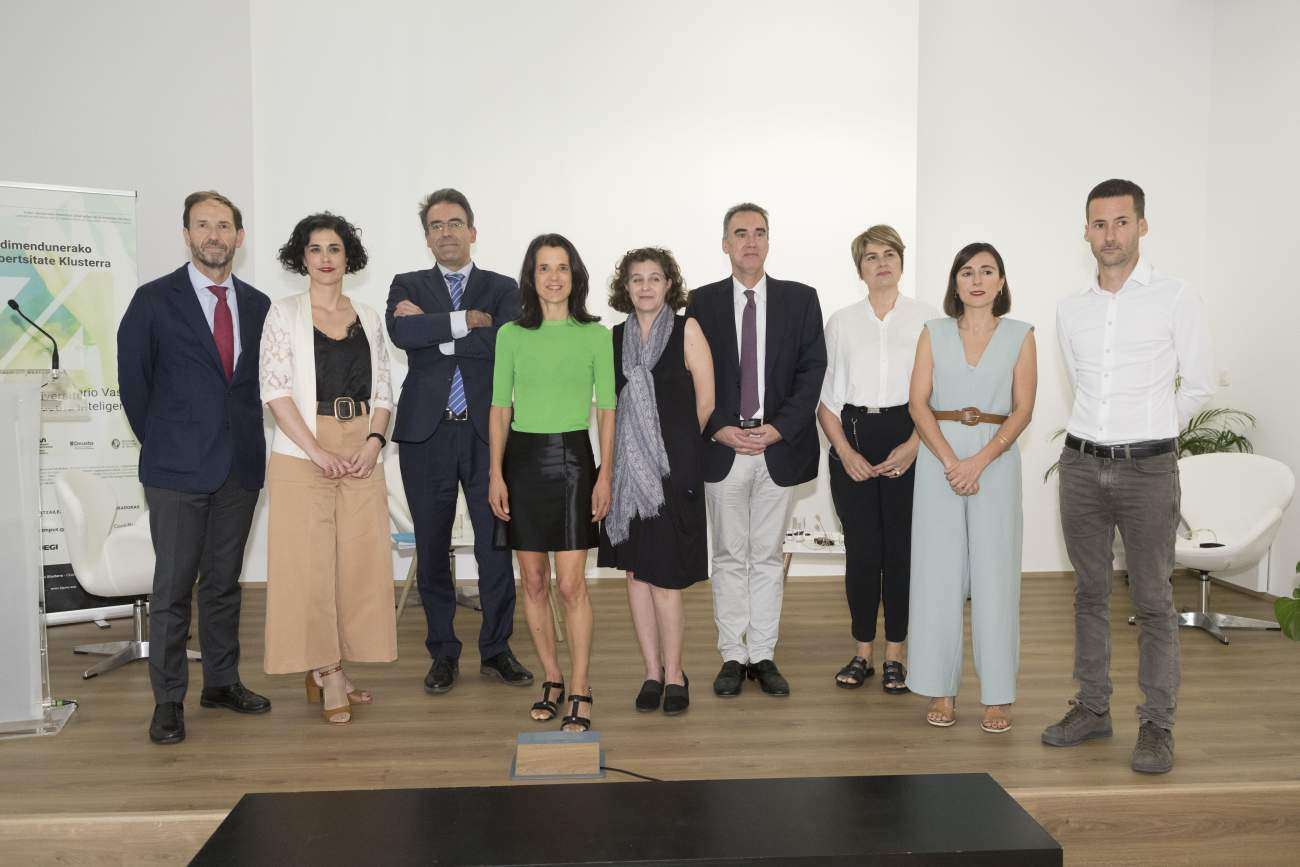The event "Energy transition, skills and job opportunities in the Basque Country", associated with the EU Green Week, was attended by representatives of the main companies in the energy sector with a presence in the Basque Country and the Engineering Schools of the Basque University System.
The meeting, organised on 8 June by the 4gune Cluster and Siemens Gamesa, was hosted by Bilbao City Council in the Ensanche Building. Together with the moderator, José Ignacio Hormaeche, General Director of the Basque Energy Cluster, other leading figures from the business and academic sectors joined the meeting to address the market opportunities generated by the energy sector and, at the same time, the magnitude of graduate staff with specialised skills that it requires. Ruth Mayoral, Head of Higher Education Programmes at Euskampus Fundazioa, introduced the day's agenda, which was opened by Xabier Ochandiano, Delegate Councillor for Economic Development, Trade and Employment at Bilbao City Council, and Miren Artaraz, Director of University Policy and Coordination of the Basque Government and Director of the 4gune Cluster of Engineering, Science and Technology in the Basque Country.
The 4gune-Siemens Gamesa binomial already has programmes such as Megaprojects or #Students4Sustainability, initiatives to promote university talent as an element of progress in the energy transition.
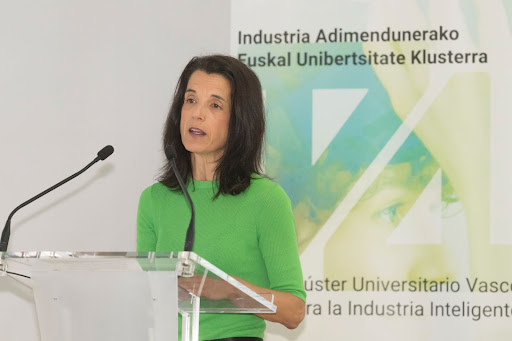
Miren Artaraz, Director of University Policy and Coordination of the Basque Government and Director of 4gune, the Basque Cluster of Engineering, Science and Technology .
The first panellists shared their experiences and perspectives on the challenge of the energy transition in the labour market: Iker Echarri, Director of Talent and Leadership Development at Siemens Gamesa, Leire Hormigo, Head of North Zone Talent and Development at Iberdrola, and María Gaztelu, Talent Manager at Petronor. The representatives of Iberdrola, Petronor and Siemens Gamesa have assured that there are great job opportunities in the energy sector, both for university students and vocational training students. Currently, practically 100% of the students in the different branches of engineering are already employed in their third year of studies. They also pointed out that they do not find a lack of skills in graduates but, nevertheless, they see the development of soft skills to complement technical skills as more necessary than ever.
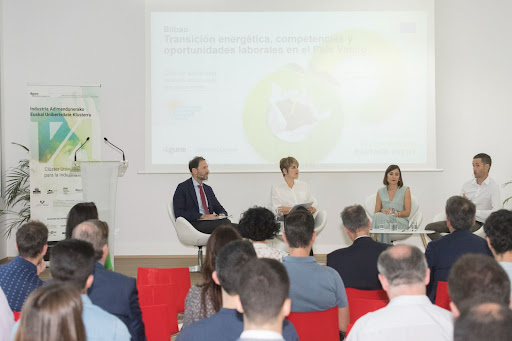
First round table: "Energy transition, skills and job opportunities in the Basque Country. Experiences and perspectives of the business environment".
After the first round table, José Ignacio Hormaeche was joined by Pablo Garcia Bringas, Vice-Dean of External Affairs and Lifelong Learning of the Faculty of Engineering of the University of Deusto, Alberto Oleaga, Deputy Director of Business Relations of the School of Engineering of Bilbao (UPV/EHU), and Nekane Errasti, Academic Director of the Faculty of Engineering of the University of Mondragón, to present their experiences and perspectives from the academic field.
The representatives of the Basque University System share their concern regarding the lack of students enrolled in training related to the energy sector. They state that one of the possible reasons for this is that young people are unaware of engineering as an area of knowledge and a space for professional development.
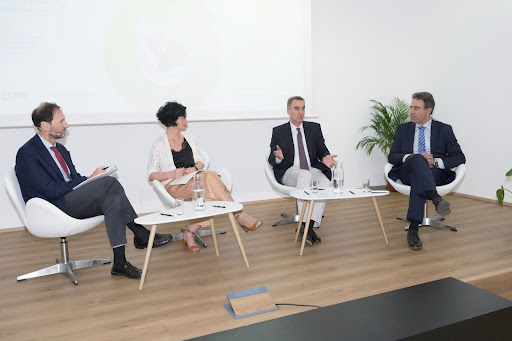
Second round table: "Energy transition, skills and job opportunities in the Basque Country. Experiences and perspectives from the academic environment".
In addition to the general shortage of students in the different scientific and technological branches related to the energy field, the participating business and academic agents shared in their speeches the gender gap as another major problem: no more than 30% of those enrolled in engineering degrees are women. The solution to both problems, they say, is to promote this branch of higher education from an early age and with a gender perspective, as well as to show them the future professional and work spaces in which they can potentially develop their knowledge.
News related news
-
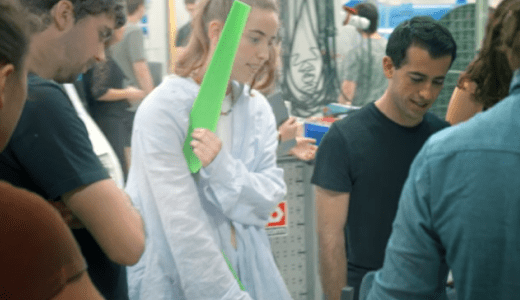
Erik Garayalde: "The 4gune Business+University programme is a window to introduce students and their talent to local companies and their challenges"
4GuneThe "Design and assembly of a single-phase wind turbine" project was selected as part of the 2022/23 call of the #Students4Sustainability programme in collaboration with Siemens Gamesa Renewable Energy (SGRE). This Business + University cooperation project was led by students doing an Energy Engineering Degree at Mondragon University with the aim of contributing to the energy transition in the Basque Country in collaboration with SGRE.
-
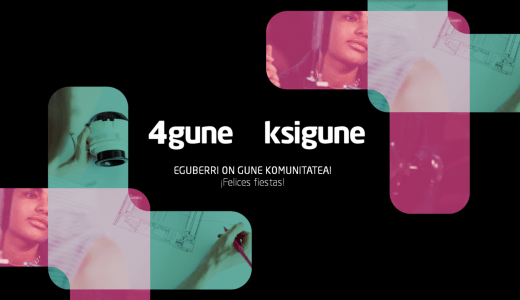
Newsletter | The Gune community highlights some 2023 milestones
4GuneThis year the Gune Community has continued to grow and advance in the connection between Higher Education + Business with 42 new projects.
-
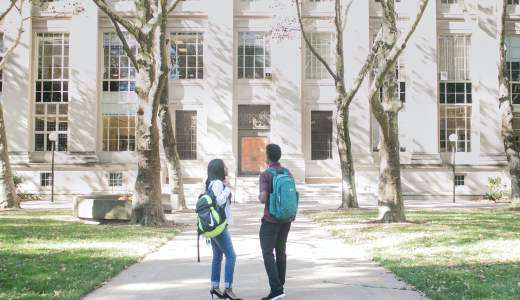
The RENSKILL and S4SYMB projects, funded by the #Students4Sustainability programme, continue to generate high-impact scientific knowledge
4GuneBoth research projects have been funded by Siemens Gamesa Renewable Energy (SGRE) in the framework of its collaboration with the 4gune - Basque Engineering, Science and Technology Cluster, which includes, among other university centres, the Deusto Faculty of Engineering. RENSKILL and S4SYMB are aimed at identifying competences in the field of renewable energy and energy efficiency.

